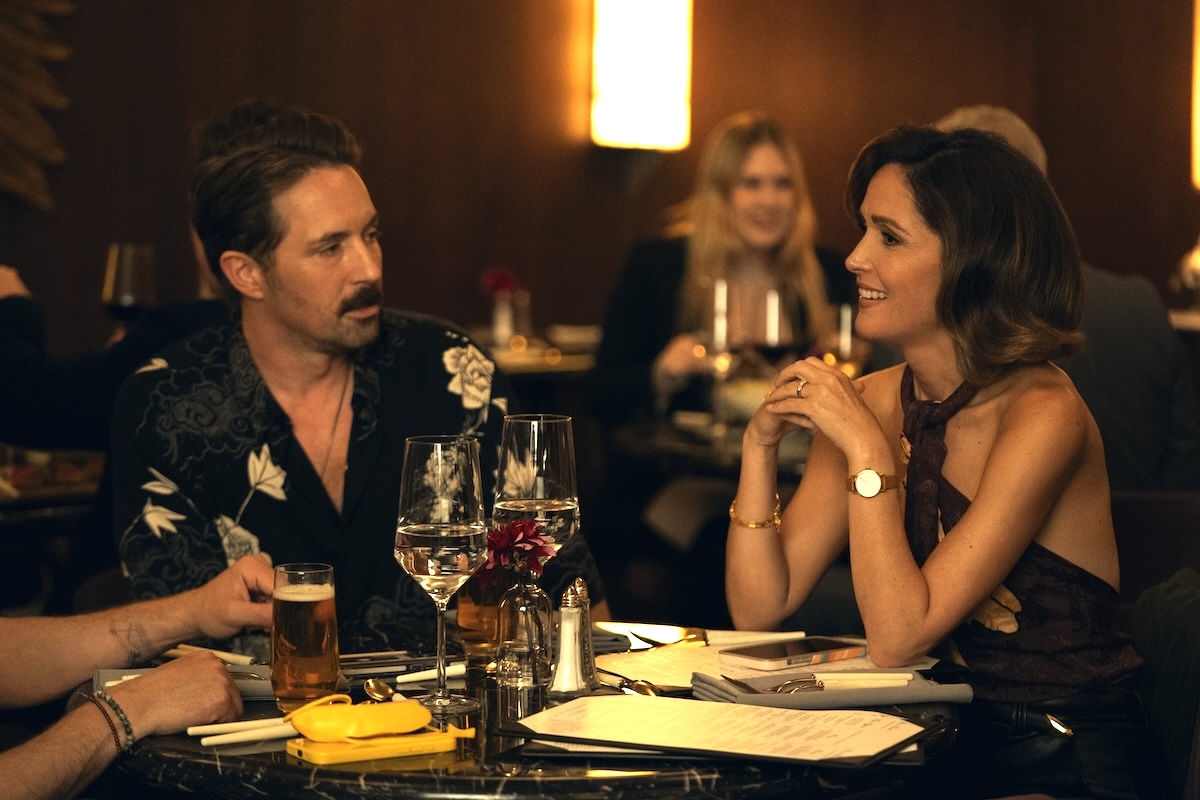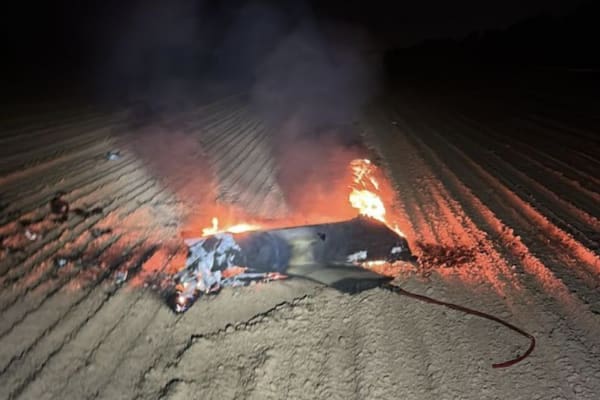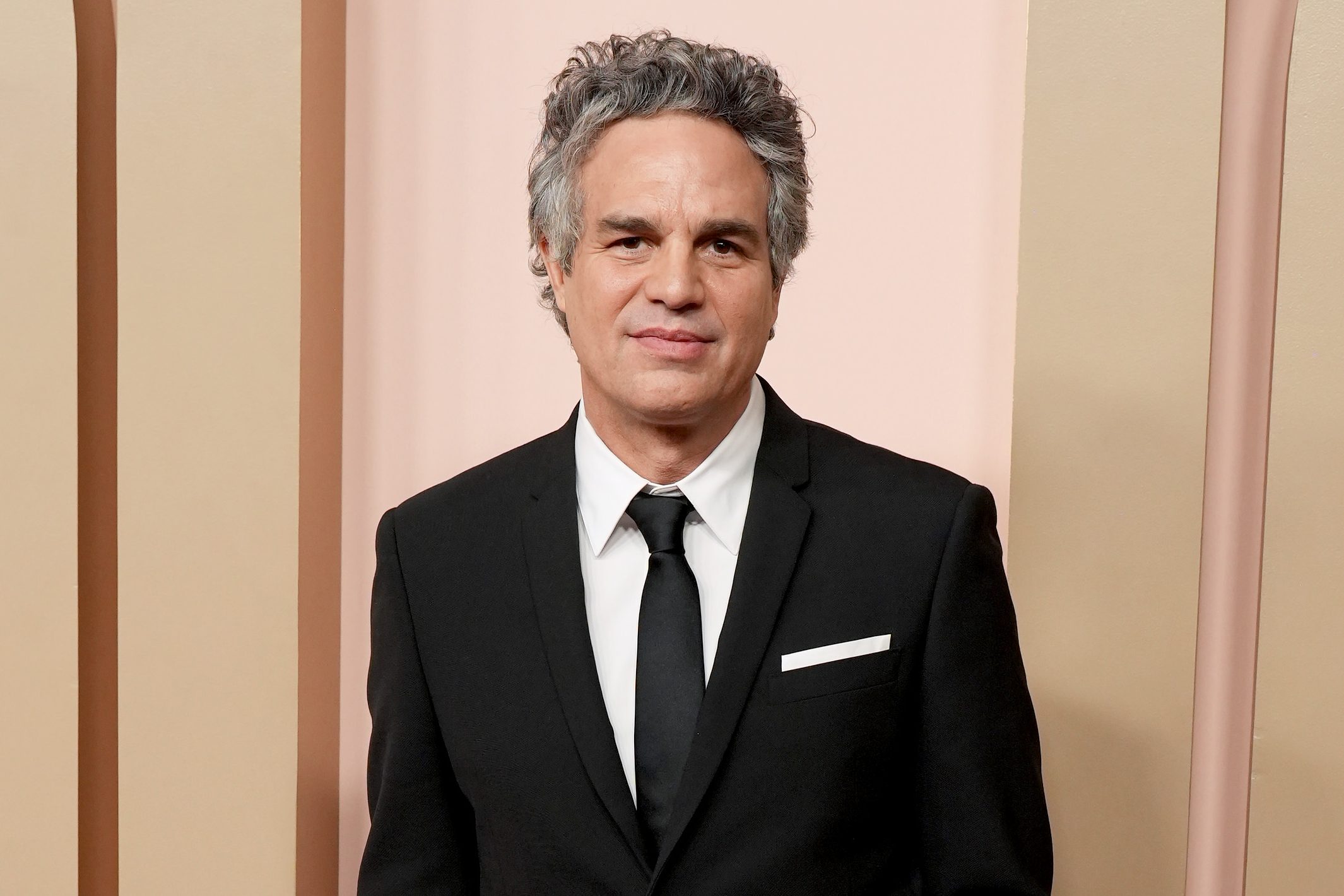SPOILER ALERT: This story contains spoilers from “The Bachelor Party,” Season 2, Episode 3 of “Platonic,” now streaming on Apple TV+.
After ending Season 1 of “Platonic” with Will (Seth Rogen)’s engagement to Jenna (Rachel Rosenbloom), Season 2 began in the days leading up to their wedding. With engagement celebrations hosted by Will’s best friend, Sylvia (Rose Byrne), the two women don’t particularly see eye-to-eye until they go out to dinner with one another. After it appears that the duo are beginning to hit it off as friends, Jenna deliberately insults Sylvia by saying she means nothing to Jenna, leaving Sylvia in a state of shock and confusion.

Courtesy of Apple TV+
“The Bachelor Party” follows the aftermath of Jenna’s comment to Sylvia, and the realization that Will and Jenna have different outlooks on the sexual aspects of their relationship (as in, she doesn’t want to have sex). After meeting up with Will and Sylvia’s old college friend nicknamed Wild Card (Beck Bennett) to celebrate Will’s engagement, the three friends begin to question Will’s happiness in his relationship and if he’s satisfied with giving up sex for the rest of his life as they explore Los Angeles together. With Will’s bachelor party set into full gear in “Platonic,” the show’s creators Francesca Delbanco and Nicholas Stoller — who are married in real life — spoke to Variety about Jenna and Sylvia’s conversation in the bathroom, working with Bennett and about Will’s aquatic wet dream at the end of Episode 3.
Popular on Variety
Since Season 1, a lot of time has passed for both Will and Sylvia over the course of their friendship. Originally, you both wanted “Platonic” to feature multiple platonic friendships each season like an anthology series. What made you both change that idea and continue the story of Will and Sylvia?
Francesca Delbanco: We had written ourselves into a little bit of a corner with Season 1, because we had originally thought of the show as an anthology series. We thought that we would have one season with Will and Sylvia, and then we would move on to a different pair of platonic friends. When we were lucky enough to get Rose and Seth to agree to come back for another season, we were thinking “We finished their story in a certain way, and how can we go back to where we left them and make it really messy and screwed up again for another season?”
We wanted to give the sense that some time had passed, but then to pick up with them in the situations where we had left them off. The conversations this time were about how we told one kind of story in the first season, and we still want this to be a show about a platonic friendship.
Nicholas Stoller: A lot of the first season was about them becoming friends again after having had a falling out, and how Charlie [Luke MacFarlane] deals with the jealousy he feels that his wife is reconnecting with a good male friend of hers. We had painted ourselves in this small corner. Once we figured it out, we found a pretty weird, interesting and honest story for the second season.
The ending scene of Episode 2 is Jenna telling Sylvia that she was nothing, which really shocks her and makes her question everything she knows about Jenna.
Delbanco: Often in this show, the tone is really very delicate. We were like “Is this too much, or is this not enough, or is this just right?” and we shot it a whole bunch of different ways, because we didn’t want it to be so broad that Jenna would never say that, or be a villain for saying it. But, we also didn’t want it to be so small that Sylvia would seem crazy for being insulted. We felt like we just had this tiny little target where it would be, and where Jenna would say that, and then Sylvia would feel it the way she feels it.
Do you feel like Jenna’s insult comes from a place of jealousy because Sylvia and Will are so close, or is it just something that she says that she doesn’t even realize is rude in Sylvia’s perspective?
Delbanco: I think that we had hoped that it would feel like Jenna’s relief after that dinner of understanding she doesn’t need to feel quite as threatened as she has felt until that moment, just makes her say it out loud. It’s like something she probably should have thought to herself and never said out loud, and it just comes out of her mouth. She’s one of those people who will say things and you’re like, “I am completely reeling and crushed and will never recover from this moment, but glad you feel better!”
Stoller: Rachel Rosenbloom, who plays Jenna, is so funny. We had cast her again, because we completely recalibrated everything about the second season. We thought she could be the conclusion to Will’s story. She seems quite sweet as a person, and then we recalibrated her character to be a bit more spiky and edgy, and just a little bit weirder.
Who came up with Will and Jenna’s affectionate nickname for each other, which is “Penguini?”
Delbanco: We were actually just discussing this between the two of us! It was one of the writers on our staff who came up with it. We just were like, “What is just something that’s so horrible to have overheard by someone else?” Every person has things in their life — whether it’s said to their family, or a romantic relationship — that they would never say out loud in front of people, and we just love the idea of that being something that comes out into the open.

Courtesy of Apple TV+
Episode 3 focuses on Will’s bachelor party when Will and Sylvia’s old college friend, Wild Card, who is played by Beck Bennett, comes to visit them in California. What was it like working with Seth, Rose and Beck on expanding their friendship that we see on screen, but also the shared off-screen history that all three characters have with one another?
Stoller: We wanted them to have this old friendship, and Wild Card is the party guy from their past. We rewrote that episode and we kept running up against this in our original intentions — he was a wild card, and he did do crazy stuff. We actually had a version of the script where he falls off a balcony. As we wrote it, we realized that no one our age does this. It just felt so predictable. We realized it would be much funnier if Wild Card is no longer wild, and that’s the slow reveal of the episode — that he’s just tired and wants to go to sleep.
Delbanco: Sometimes it takes us a while to really hit what the truth is in each episode, and the dynamics. What we felt like in that episode was that Rose’s character desperately needs to feel young, wild and vital again, and she’s so excited about it that it’s almost pathetic and desperate, but it feels very real and relatable. She’s so excited to have a good time and she’s almost white-knuckling it, and then it’s this question of what could possibly deliver it? What, in her mind, could be that great a time? It’s not gonna be anything. She’s a woman in her mid-40s; she’s just going home to sleep at her house. So her heightened expectations met with the reality of just going out to dinner. We thought it felt like the realist version of that comedy.
We were wondering if this has ever happened to anyone, and when we were working on it, we were googling “what can you do on a Friday night in the Greater L.A. area?” We looked it up, and discovered an event that was held late at night at the aquarium in Long Beach.
The episode ends with Will, Sylvia and Wild Card talking about how Will and Jenna don’t sleep with one another, and how Will needs to end the engagement since both of them have different outlooks on sex. After Will and Wild Card come back from the aquarium, Will has this wet dream that involves the whales and animals he saw at the event that ultimately makes him realize he has to end the relationship with Jenna. Where did the wet dream idea come from?
Delbanco: I remember exactly where we were in the writers’ room when the idea happened: It’s an episode that’s about sex, and it’s about how much Will has repressed his own needs and desires to make this engagement work. We felt like there had to be some incontrovertible evidence — like Sylvia telling him that sex is important in marriage. There are a lot of signs pointing to it, and he just refuses to listen to anything. We knew he needed to realize he must end this relationship, because the character needs to turn at the end of the episode. So, we had to sit back and think about what would be the silliest way that he could realize it.
Stoller: We wanted to flip the kind of normal gender dynamics where the woman never wants to have sex and the guys do and make it like both Wild Card and Will are saying that you don’t need sex to have a healthy marriage, because they both are in denial. Sylvia has a very healthy sex life with her husband, so she is on the opposite side. That’s the joke of the episode, and it’s flipping those dynamics that you often see in TV shows that aren’t necessarily true.
This interview has been edited and condensed.





